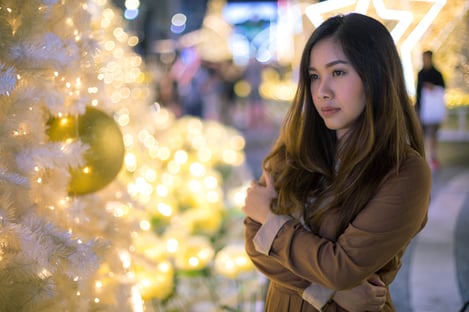 The holiday season is often portrayed as a time of joy, celebration, and togetherness. However, for many individuals, this time of year can bring about feelings of anxiety and depression. It's essential to recognize the distinction between holiday anxiety and depression to better understand and address the unique challenges that may arise during this festive season.
The holiday season is often portrayed as a time of joy, celebration, and togetherness. However, for many individuals, this time of year can bring about feelings of anxiety and depression. It's essential to recognize the distinction between holiday anxiety and depression to better understand and address the unique challenges that may arise during this festive season.
What is Holiday Anxiety?
Holiday anxiety, also known as holiday stress, refers to the heightened sense of worry, tension, or unease that some individuals experience in the lead-up to and during the holidays.
Causes of Holiday Anxiety
The cost of gifts, travel, and holiday festivities can lead to financial strain. The pressure to attend events, meet social expectations, and engage in holiday traditions can contribute to anxiety. Balancing holiday preparations with daily responsibilities can also create time-related stress.
Symptoms of Holiday Anxiety
Feeling on edge or easily agitated, as well as physical manifestations of stress, such as tense muscles, are all symptoms of anxiety during this time of the year. A preoccupation with holiday-related concerns that impacts focus can also make concentrating more difficult.
Coping Strategies for Holiday Anxiety
Prioritize self-care by setting aside time for relaxation and other self-care activities. Be sure to manage your expectations regarding social commitments and financial expenditures. Talk to friends, family, or a mental health professional about your concerns.
What is Holiday Depression?
Seasonal depression is a more persistent and pervasive emotional state characterized by feelings of sadness, hopelessness, and a lack of enjoyment during the holiday season.
What Causes Holiday Depression?
The holidays can intensify feelings of loss, particularly for those who have experienced the death of a loved one. Loneliness or a sense of social isolation can also contribute to holiday depression. Comparisons to an idealized version of the holidays may lead to more disappointment and sadness as well.
Symptoms of Holiday Depression
The feeling of persistent sadness, or consistently down or hopelessness is a major symptom of holiday depression. You can also experience a lack of enjoyment in once-pleasurable activities. Disruptions in sleep patterns or changes in eating habits can be another sign.
Coping Strategies for Holiday Depression
Connect with friends, family, or support groups to share your feelings for additional support. If dealing with loss, allow yourself to grieve and seek professional help if needed. You can also consider establishing new, more manageable holiday traditions.
How Do You Differentiate Between Anxiety and Depression?
Holiday anxiety tends to be situational and related to specific stressors during the season, while holiday depression is characterized by more persistent and intense feelings that extend beyond the holiday period. Anxiety may lead to heightened stress but generally doesn't impair daily functioning. Depression, on the other hand, can significantly impact a person's ability to engage in daily activities and maintain relationships. Anxiety often stems from external stressors, while depression may have underlying factors such as a history of mental health issues or unresolved emotional challenges.
Understanding the differences between holiday anxiety and depression is crucial for effective coping and seeking appropriate support. Whether you're navigating the stresses of the season or dealing with more persistent emotional challenges, acknowledging your feelings and reaching out for help can make a significant difference. The holiday season should be a time of compassion and understanding, both for oneself and others.
The professionals at Lane Family Practice are here to help. If you or someone you know is struggling with holiday-related mental health concerns, consider seeking professional assistance to ensure a supportive and nurturing path forward.




